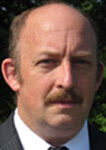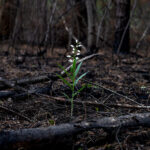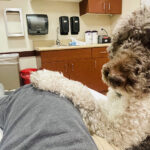When a hurricane, tsunami, earthquake, prolonged drought, or other disaster happens halfway around the world, the first question many responders ask is, “How can I get there and help?” That question should in fact be asked before the disaster even happens. There is a huge amount of pre-planning required – involving logistics, equipment, and personnel – for response efforts to be successful. For example, because many individual responders do not possess the financial resources needed to make what might well be an open-ended journey, those who feel drawn to the cause must find other ways to fund their response efforts.
Becoming a member of an organized team or group is perhaps the quickest and most efficient way for medical professionals to lend their skills to international disaster recovery efforts. Well-known international humanitarian organizations such as Doctors Without Borders (headquartered in Geneva, Switzerland) and the International Medical Corps (a privately funded non-government organization based in Los Angeles, California) already accept properly credentialed volunteers for missions of various lengths. The National Disaster Medical Service (NDMS) – an agency of the U.S. Department of Health and Human Services – also uses U.S. medical personnel, and other professional responders, to cope with domestic disaster-response missions.
Each of these agencies possesses the resources and expertise needed to address the logistics and other non-medical aspects of various disasters, which means that individual volunteers can focus their efforts where they are most needed: on the medical care itself.
The Proper Documents & the Right Equipment
When planning for an international medical response, passport and other travel requirements remain in force – even when traveling for a good cause – so passports and visas must be readily available. According to the U.S. State Department website, the full processing time for obtaining a passport is 2-3 weeks (expedited service is available at an additional cost), but might be longer when demand is high. For medical volunteers, it is important not only to possess the proper documents but also to consider potential closures resulting from: (a) government-imposed restrictions to keep outsiders away; and/or (b) functional blockages, such as disrupted train schedules, road closures, and/or heavily damaged piers and airports.
During routine events, there are numerous rules and regulations already in place – designed to protect and ensure the integrity of the responders as well as the health of the patients. Various rules of law, to cite the most obvious example, protect patients from receiving medical care from persons – again, no matter how well motivated – who have not been properly trained to provide such care.
These laws are supplemented by secondary “Scope of Practice” laws that define the minimum training and skill levels required for specific types of treatment. The credentialing of disaster medical staff will help protect both the patient and the community from unqualified practitioners. The truth is, unfortunately, that disasters of all types frequently attract people who may genuinely want to help – and may also be willing to provide care well beyond their own actual skill levels.
Protecting the Supply Chain
To provide an additional layer of protection against those operating outside their own personal skill levels, medical equipment and medications are controlled and can be legally possessed only by certain es of practitioners. In a nation where the rule of law is still functioning and the legal safeguards needed are still in place, medical equipment, operating tools, and medications are often restricted. Obtaining the right even to possess medications and medical equipment in another country can be a complicated process. Individual volunteers, however well-intentioned, who seek to bring medications into another country may be subject to fines and/or arrest if they have not gone through the legal and administrative steps required.
In the case of an NDMS response within the United States itself, medical licenses have been federalized and thus allow qualified responders to provide medical care and possess medications in any state of the union. Providing for the safety and security of staff and supplies is a significant task. Partnering with law enforcement – either from the host country or from the responder’s own country – allows medical staff to concentrate their own efforts primarily on caring for survivors, while other professionals maintain the safe environment needed for that care to be effective.
No medical response is totally without risk – to the patient, to the responder, and to the community. It might be a better world if people who are simply trying to help were shielded, at least partially, by their good intentions – but that is not and probably should not be the case. Therefore, a minimum amount of insurance is needed for: (a) the responder; (b) any significant equipment involved; and (c) liability for the care provided.
An oversight organization can provide many of the legal and practical necessities, including those mentioned above, for the individual provider. The same organization also can provide helpful guidance in carrying out tasks that only the individual volunteer can do – obtaining a passport, for example. Human nature being what it is, each day there are people who are strongly and sympathetically affected by the aftermath of a disaster. Many people feel driven to use their skills and knowledge to help, but organizations are there to ensure that the right help goes through the right channels to reach the survivors in need of their assistance.
_____________
For additional information on: Passports, visit https://travel.state.gov/content/travel/en/passports.html/passport_1738.html
International Medical Corps, visit http://internationalmedicalcorps.org/Page.aspx?pid=311&gclid=CLWt3rvs0rACFYje4AodDCLtzQ or http://www.charitynavigator.org/index.cfm?bay=search.summary&orgid=8158
NDMS Teams, visit https://web.archive.org/web/20170903032918/http://www.phe.gov:80/Preparedness/responders/ndms/teams/Pages/default.aspx
Doctors Without Borders, visit https://www.doctorswithoutborders.org/

Joseph Cahill
Joseph Cahill is the director of medicolegal investigations for the Massachusetts Office of the Chief Medical Examiner. He previously served as exercise and training coordinator for the Massachusetts Department of Public Health and as emergency planner in the Westchester County (N.Y.) Office of Emergency Management. He also served for five years as citywide advanced life support (ALS) coordinator for the FDNY – Bureau of EMS. Before that, he was the department’s Division 6 ALS coordinator, covering the South Bronx and Harlem. He also served on the faculty of the Westchester County Community College’s paramedic program and has been a frequent guest lecturer for the U.S. Secret Service, the FDNY EMS Academy, and Montefiore Hospital.
- Joseph Cahillhttps://www.domesticpreparedness.com/author/joseph-cahill
- Joseph Cahillhttps://www.domesticpreparedness.com/author/joseph-cahill
- Joseph Cahillhttps://www.domesticpreparedness.com/author/joseph-cahill
- Joseph Cahillhttps://www.domesticpreparedness.com/author/joseph-cahill






